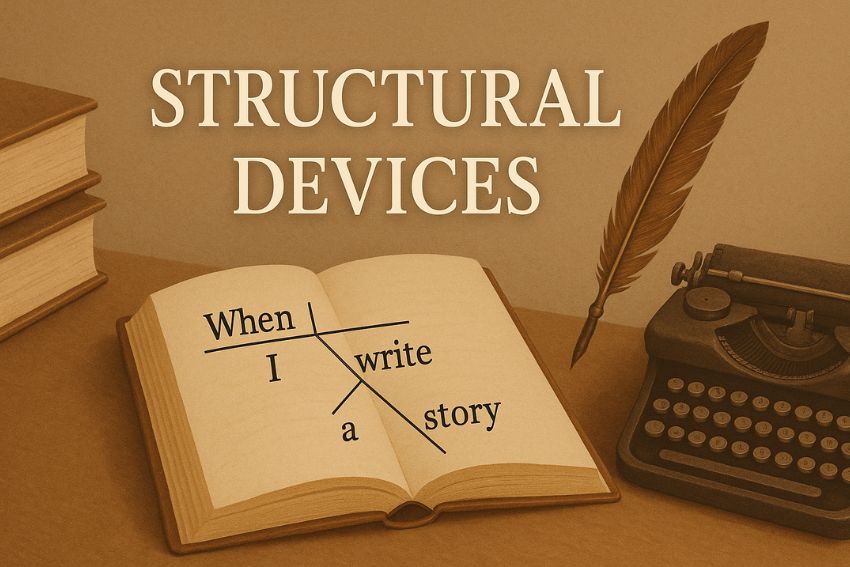Top 10 Differences Between WJEC and Edexcel GCSE Science
WJEC and Edexcel are two of the most common options for GCSE Science. Each has its own structure, exam style, and revision resources. As you may know, choosing the right exam board can really help you with your experience. The way topics are organised, how questions are asked, and even how practicals are assessed can vary quite a bit. Knowing and understanding the differences between them can help you feel more sure, especially if you’re switching boards or preparing for mocks.
In this blog, you’ll find 10 differences between WJEC and Edexcel GCSE Science. Let’s help you feel more prepared, whichever board you’re studying.
Exam Board Overview: WJEC vs Edexcel
WJEC is mainly used by schools in Wales, while Edexcel is one of the most popular boards across England and internationally. Both offer GCSE Science, but the way they structure and assess it has some clear differences.
For starters, each exam board gives students the choice between combined science and triple science (also called separate sciences). In GCSE combined science, students study all three subjects – Biology, Chemistry, and Physics, but receive two GCSEs. Triple science gives them a separate GCSE in each subject, which can be useful for students considering A Levels in science later on.
Although the content is broadly similar, how it’s delivered and tested depends on the exam board, something we’ll explore in the next sections.

Difference 1: Number and Length of Exam Papers
One of the biggest differences between WJEC and Edexcel is how many papers students sit and how long each one is. With WJEC, students take four exam papers, whether they’re doing combined or triple science. Each paper tends to be longer and covers a wider range of content. This means fewer exams overall, but more time spent on each one.
In contrast, Edexcel splits the exam into six shorter papers – two each for Biology, Chemistry, and Physics. These are more focused and spread out, which some students find less overwhelming. This difference can really affect your exam pacing.
If you find it easier to focus on one subject at a time in shorter sessions, Edexcel’s structure may work well for you. On the other hand, if you’re confident managing longer exams that cover more material in one go, WJEC could be a better fit.
Difference 2: Assessment Style and Question Types
The way questions are asked in the exams also sets these two boards apart. Edexcel often uses a structured approach. You’ll see lots of data-handling questions, graphs, and multi step problems, especially in Physics and Chemistry. Many questions guide you through each step, which can help if you like working through problems in a clear, logical order.
WJEC, on the other hand, tends to use more context based questions. These ask you to apply your knowledge, often with a bit more reading. This style is especially common in exams taken in Wales, where bilingual question papers are sometimes offered.
You might also notice some differences in command words. For example, Edexcel uses clear and direct wording like “Calculate” or “Explain why,” while WJEC sometimes asks you to “Discuss” or “Describe and explain,” which might require more interpretation. Their mark schemes also reflect this Edexcel often rewards concise, step by step answers, whereas WJEC might expect fuller responses in longer questions.
Difference 3: Practical Skills Assessment
Both WJEC and Edexcel assess practical skills through written exams. There’s no coursework or separate practical assessment, everything is tested on paper.
However, there are some small differences in how each board approaches this. Edexcel often includes structured practical based questions with clear steps. You might be asked to identify variables, describe a method, or analyse results using given data. These questions are usually direct and supported by diagrams or tables. So while both boards cover the same practical skills, Edexcel tends to guide you through them, while WJEC may expect more interpretation and explanation.
Difference 4: Tiering and Entry Levels
Both WJEC and Edexcel offer two entry tiers for GCSE Science – Foundation and Higher. These tiers affect the range of grades a student can achieve. Foundation covers grades 1 to 5, while Higher allows access to grades 4 to 9.
Where things differ is in flexibility. Edexcel gives more options, especially in triple science. For example, a student can sit Higher tier for Biology but Foundation for Physics if that suits their strengths. This flexibility can help students play to their advantages and reduce pressure in weaker subjects.
WJEC, however, tends to keep things more uniform. Most students are entered for the same tier across all science papers either Foundation or Higher. While this makes exam entry simpler, it can be limiting for those who have mixed strengths across the three sciences. If you’re taking GCSE Science and need more options across subjects, Edexcel may offer a bit more room to adjust.
Difference 5: Grading Structure and Boundaries
Both WJEC and Edexcel use the 9-1 grading system for GCSE Science, where 9 is the highest grade and 1 is the lowest. A grade 4 is considered a standard pass, while a grade 5 is a strong pass.
Although the grading scale is the same, the grade boundaries can vary slightly each year and between boards. These boundaries depend on how difficult the exam papers were in a given year. If many students found a paper challenging, the boundary for a grade 5 or 6 might be lower to balance things out.
In the past, some students and teachers have said that WJEC papers feel harder or more wordy, especially in longer questions. Others feel that Edexcel exams are more predictable, with a clear structure and layout. However, Ofqual regulates all boards, so they are designed to be equally fair. The differences mostly come down to question style and how students respond to them. While the grading system itself is the same, the experience can feel different and that might influence how students perform.

Difference 6: Triple Science vs Combined Science
Although both WJEC and Edexcel offer triple and combined science at GCSE level, the way they deliver and emphasise these routes can feel quite different once you’re preparing for the exams.
Like we already mentioned, with Edexcel triple science is treated as three separate subjects, each with clearly defined content. This makes it easy for students to focus their revision one subject at a time, especially when using textbooks or online guides costumised to each science.
WJEC also separates the sciences in triple science, but in the combined science course, there’s often more crossover between topics. Some exam questions may require applying knowledge from more than one subject area. This slightly blended approach can encourage students to think more holistically, but it may also feel trickier for those who prefer clear subject divisions.
While both boards offer the same qualification routes, the way they present and organise the content, particularly for combined science can shape how students study and approach their revision.
Difference 7: Specification Content and Sequence
Both WJEC and Edexcel cover the same areas in GCSE Science, but the order and how the topics are grouped can be different. In Edexcel, certain topics, like space physics are clearly labelled as triple science only and taught as separate units. WJEC includes similar material but sometimes places it within broader themes, especially in combined science. A good example is chemical cells: Edexcel treats it as its own topic, while WJEC may include it as part of a wider section on energy changes.
These differences don’t change the core ideas but can shift how students approach revision. If you’re using revision guides or videos made for a different board, you might find topics taught in a different order or explained slightly differently. Always double check with your own exam board’s specification to stay on track.
Difference 8: Marking and Examiner Reports
Both WJEC and Edexcel aim to make their marking systems clear, but their feedback styles and post exam support can feel quite different.
WJEC often provides detailed examiner reports that explain how students responded to each question, what mistakes were made, and how marks were awarded. In Wales, these reports are sometimes available in both English and Welsh, which is helpful for bilingual schools. WJEC also includes extra notes for teachers, which can make the marking process more transparent for students too. Edexcel also offers in depth post exam materials. Their examiner reports usually come with model answers, showing what a top mark response looks like.
Difference 9: Resources and Revision
Both WJEC and Edexcel offer resources to help students prepare for GCSE Science. However, the type of support can differ.
WJEC gives free access to past papers, mark schemes, and examiner reports for GCSE Science. In England, these are available under Eduqas, which is WJEC’s English branch. Model answers are limited, but mark schemes are detailed. Examiner reports often explain how students performed and highlight common mistakes in science questions.
Edexcel, through Pearson Active Learn, provides more digital tools for GCSE Science. These include quizzes, topic summaries, and videos that helps you with difficult science topics. The extra features are useful for students who prefer self paced or interactive revision. In short, Edexcel offers more digital content. WJEC focuses on exam style practise. Both support GCSE Science well, just in slightly different ways.
Difference 10: Regional Focus and Accessibility
Since both WJEC and Edexcel offer GCSE Science, their regional focus and accessibility can feel bit different for students. WJEC is mainly used in Wales and offers exam papers, specifications, and resources in both English and Welsh. This is a big advantage for Welsh-medium schools and bilingual learners. It allows students to study GCSE Science in the language they’re most comfortable with.
Edexcel, on the other hand, is mostly used in England and delivers all GCSE Science content in English. It’s also a popular choice for international schools that follow the UK curriculum, especially through the Edexcel IGCSE.
Despite these differences, both exam boards are fully recognised across the UK. A WJEC Science GCSE is just as valid as one from Edexcel. So whether you’re sitting exams in Wales, England, or abroad, the qualification holds the same value.
Summary Table: WJEC vs Edexcel GCSE Science
| Feature | WJEC GCSE Science | Edexcel GCSE Science |
| Region | Mainly used in Wales | Widely used in England and internationally |
| Language Options | English and Welsh | English only |
| Exam Papers | 4 papers (longer, broader) | 6 shorter papers (2 each for Bio, Chem, Physics) |
| Assessment Style | Context based, more wordy | Structured, step by step questions |
| Practical Skills | Written exam questions with open ended phrasing | Written practicals with structured formats |
| Tiering Flexibility | One tier across all sciences | Mix and match tiers allowed for triple science |
| Grading Boundaries | Can vary slightly year to year | Also varies slightly; both follow 9-1 scale |
| Triple vs Combined Science | Slightly more integrated in combined science | Clearly separated subjects, especially in triple |
| Content Sequence | May group topics under broader themes | More linear and clearly divided |
| Content Sequence | Traditional (past papers, mark schemes, Eduqas) | Includes digital tools by Pearson |
Conclusion
When it comes to GCSE Science, both WJEC and Edexcel offer solid qualifications but the experience can feel quite different. From the number of exam papers to question styles, topic sequencing, and revision resources, each board has its own way of doing things.
Instead of worrying about which board is harder, focus on consistent revision and. And if you ever feel stuck, GCSE Science online tutors can offer you the help you need. They’ll make tough topics much more easier to understand and support you as you practise past papers for your specific exam board.
FAQs
Is GCSE science hard?
GCSE Science can be challenging, but it depends on how you learn best. Some students find the mix of facts, formulas, and practical knowledge difficult at first. But with regular revision, good notes, and past paper practise, it becomes much more manageable especially if you get help when you need it.
What is the hardest GCSE?
What is the hardest GCSE? There’s no single “hardest” GCSE, as it really depends on your strengths. Some students struggle with subjects like Maths or Physics, while others find English Literature or languages more difficult. Science is often seen as tough because it combines three subjects, but the key is preparation and staying consistent.
How many GCSEs do you get for science?
It depends on the route you take. If you do combined science, you’ll earn two GCSEs. If you take triple science (also called separate sciences), you’ll get three GCSEs, one each for Biology, Chemistry, and Physics.
What's the easiest GCSE?
Easiest GCSE subjects? “Easiest” is different for everyone. Some students find subjects like PE, Media Studies, or Citizenship easier because they suit their interests and learning style. But no GCSE is truly easy, it all comes down to how you prepare and engage with the subject.








